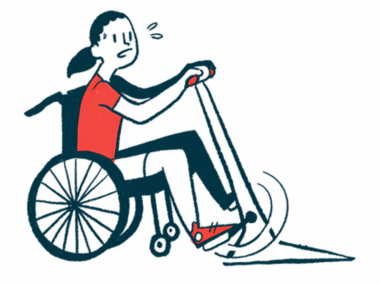‘Crip Camp’: Disability Looking Me Right in the Eye
Written by |

In early July, I wrote a column about Disability Pride Month. It’s not for me, I said. I questioned the word “pride” and asked whether we need a special month to advocate for a more inclusive world.
Several people commented on that column — some supported my thoughts, while others were critical of what I wrote. A woman named Danielle wrote a particularly strong comment ending with: “I think you are missing the point of disability pride, it is not celebrating the disease but the person who has the disease. The person who goes through life and has to fight for their right to treatments and autonomy. I think you need to do some more research about the disability movement. If you haven’t seen a movie called ‘Crip Camp,’ that would be a good place to start.”
I answered that I’d watch the film, and now I have.
‘Crip Camp: A Disability Revolution’
The Netflix documentary “Crip Camp” focuses on Camp Jened, a summer camp in New York’s Catskill Mountains for people with disabilities. It operated from the 1950s to the ’70s, and the movie documents how it generated the kind of disability pride that led to the disability rights movement of the ’70s and ’80s. In the film’s introduction, writer, director, and former camper Jim LeBrecht says, “The wild thing is, this camp changed the world.” That may not be hyperbole.
At Camp Jened, campers learned what they could do. They also confronted what they couldn’t — a step at the entrance to an ice cream store, for example, and attitudes inside the store that were as cold as the ice cream. They weren’t welcome inside, they were told, because they made customers feel uncomfortable.
“People saw me as someone who was sick. … We knew we were all being sidelined,” one camper said. But in camp, they were just people.
The start of a movement
The campers didn’t forget those feelings or the connections they made with one another after their camp days ended. Several reconnected a few years later. Led by a camper with polio named Judy Heumann, they planted the seeds that blossomed into the disability rights movement. Eventually, the movement resulted in passage of the Americans with Disabilities Act in the U.S.
“Crip Camp” is a compelling movie that brought me eye-to-eye, sometimes uncomfortably, with people with significant disabilities. It helped me understand the passion and power behind events such as Disability Pride Month. But it failed to make me feel a real connection with those amazing people who did so much to make things better for me.
I don’t feel disabled
I thought about this and concluded that though I walk with two canes and use a scooter to get around, I don’t feel disabled. Maybe the reason is I was 30 years old before my multiple sclerosis was diagnosed. I didn’t look disabled until I was in my 50s. I was never denied a job or a seat in a classroom or an ice cream cone because of my MS, and people don’t avoid me or look away.
Now that I’ve seen “Crip Camp,” I can understand the pride of the people who celebrate Disability Pride Month. But how can I connect with a group of people, some who literally crawled up the steps of the U.S. Capitol to demand legislation that has cut curbs, opened doors automatically, and supported my disabled rights?
A movie is worth a thousand proclamations
Though I can’t truly connect, “Crip Camp” allowed me to appreciate the determination and sacrifices of the people who started in a summer camp and wound up on Capitol Hill, as well as the pride in what they accomplished. “Crip Camp” is worth a dozen Disability Pride Months and proclamations. If you haven’t watched it, please do. I think you’ll feel the same.
You’re invited to visit my personal blog at www.themswire.com.
***
Note: Multiple Sclerosis News Today is strictly a news and information website about the disease. It does not provide medical advice, diagnosis, or treatment. This content is not intended to be a substitute for professional medical advice, diagnosis, or treatment. Always seek the advice of your physician or other qualified health provider with any questions you may have regarding a medical condition. Never disregard professional medical advice or delay in seeking it because of something you have read on this website. The opinions expressed in this column are not those of Multiple Sclerosis News Today or its parent company, Bionews, and are intended to spark discussion about issues pertaining to multiple sclerosis.






Leave a comment
Fill in the required fields to post. Your email address will not be published.